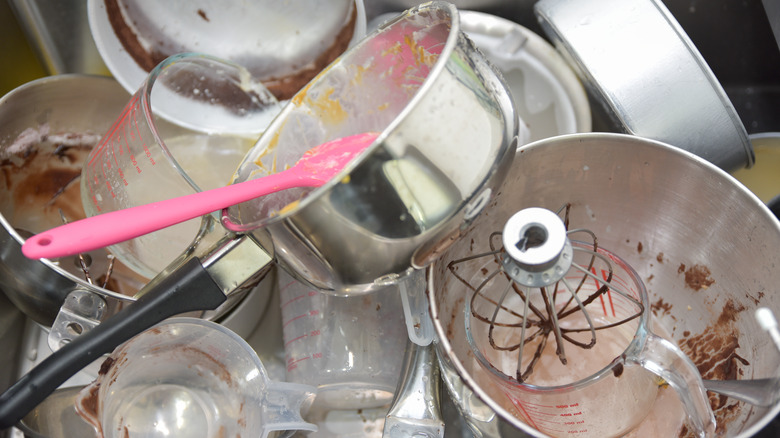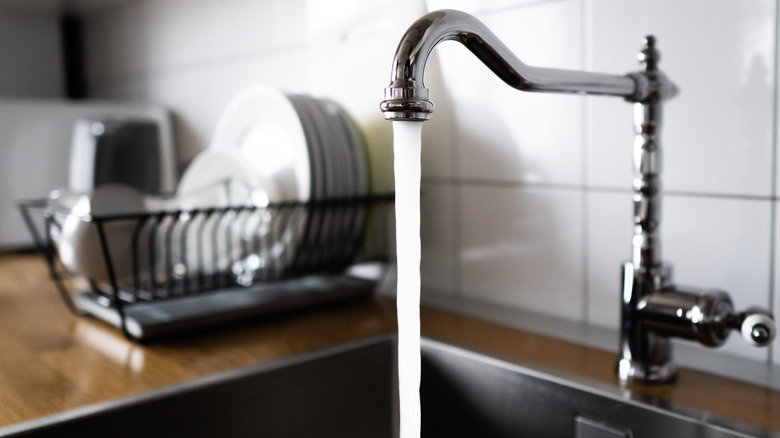Don't Make This Mistake When Cleaning Up After Baking
Nobody looks forward to the towering pile of dishes that awaits them after spending some time in the kitchen, but we can all probably think of a few recipes that yield an easier cleanup than others. Sheet pan and slow-cooker meals are two particular cooking methods that stand out when you're in search of food that's painless to both make and tidy up after, but if you're wanting to accompany your dinner with a fresh loaf of homemade bread, or perhaps want to indulge in a warm chocolate chip cookie for dessert, getting your kitchen back into tip-top shape is a more complicated task.
Yes, the sad truth is that all those handmade treats we love to keep around our homes come with the price tag of having to wipe down every inch of counter space for dry ingredients that have gone rogue and scraping sticky dough remnants off of utensils and bowls. And while there's, unfortunately, no magic trick to making the entire cleanup process disappear (unless, of course, you're willing to give up your fresh-baked goodies for something storebought), there is one mistake that you can avoid that will make the job monumentally easier to complete.
Cold water is your friend when it comes to post-baking cleanup
Hot water might seem like the obvious choice when it comes to your post-baking cleanup, but Food & Wine warns that this is a major no-no because "hot water strengthens the gluten in the flour." Therefore, your instinctive move to reach for your sink's red-painted knob effectively strengthens those pesky dough scraps that are stuck to the sides of your mixing bowl, making it much harder for you to wipe them clean. Instead, the outlet advises giving your bowls and utensils a good soak in cold, soapy water, which LifeHacker notes will help "relax the gluten."
Be sure to try and get as much dough off of your tools with something like a pastry scraper before their cold water bath to avoid clogging up your sink, and after about 10 minutes, you can use your fingers to rub off the remaining dough remnants before switching to hot water to finish up the rest of the cleanup. Food & Wine also suggests using a bristle brush or a non-porous sponge, but if a regular kitchen sponge is all you have available, this trick will help you avoid the gummy buildup that usually leaves your cleaning tool destined for a one-way trip to the trash. Now, if only there was a way to prevent our hands from becoming a doughy mess when making a fresh batch of bread — oh wait, we have a trick for that too.

